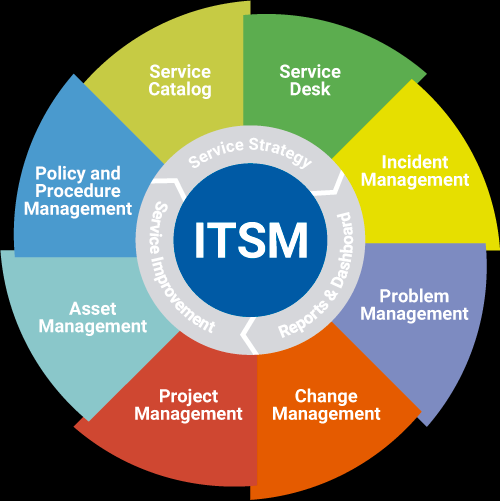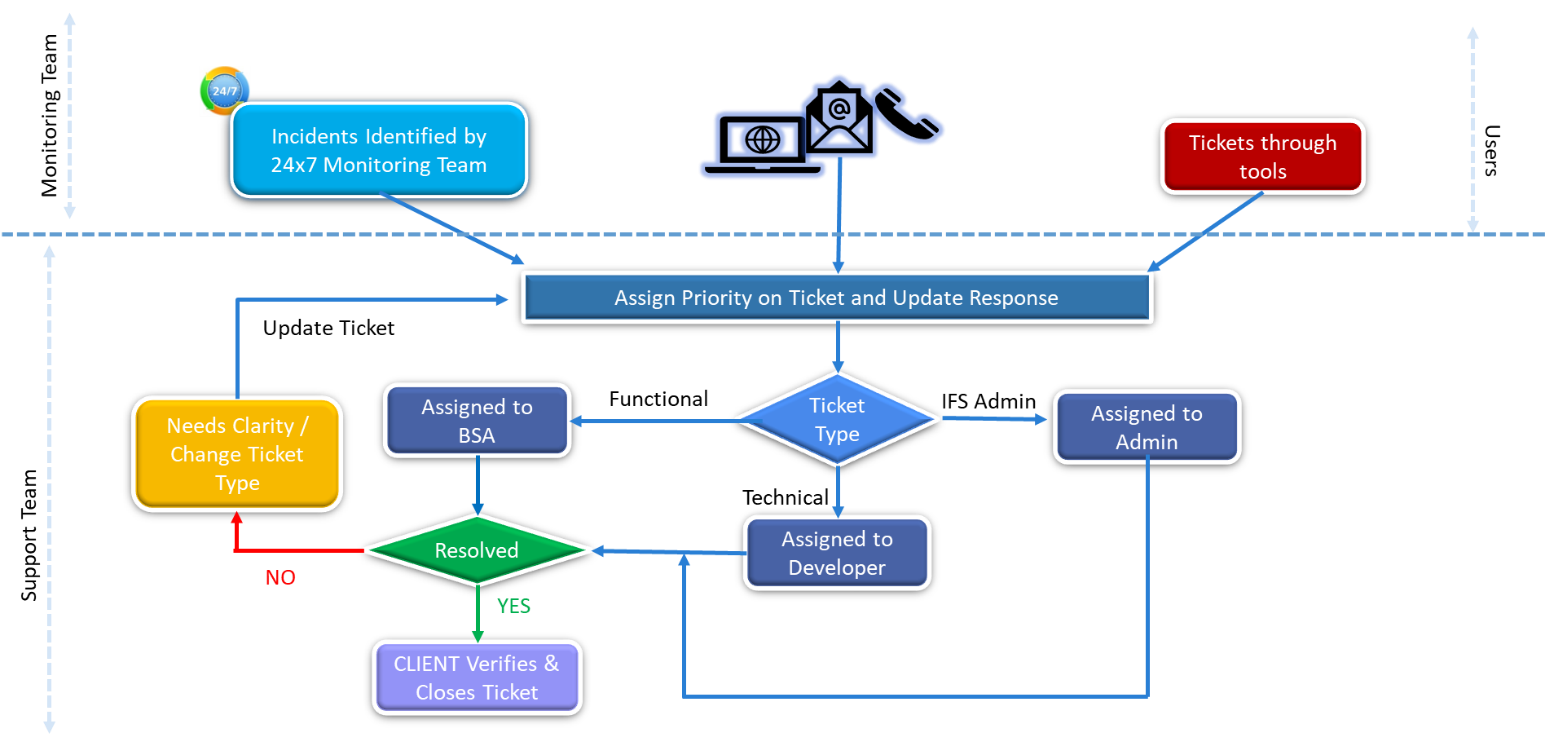IFS is a global cloud-based Enterprise Resource Planning (ERP), Enterprise Asset Management (EAM), Field Service Management (FSM), and Customer Engagement (CE) software solution provider. Multiple IFS products are listed as “leaders” in the Gartner Magic Quadrant. All of IFS’s enterprise suites work by leveraging its core technology called IFS Applications.
For IFS applications (ERP, FSM or CE) to work seamlessly, its health needs to be monitored regularly. It needs to be checked to ensure the health of the infrastructure, database and the applications to enable the best possible availability of the application. To ensure the continued security and stability of the application, IFS also releases periodic patches. Operating System service providers and database OEMs also provide patches that need to be applied to the environment at regular intervals. These also need to be tested for compatibility and then applied to the IFS system in place. To handle these tasks in an efficient manner requires specific skills and many resources.
ProV's Managed Services are designed according to the ITSM Service Strategy. These services help customers manage their ERP related day-to-day operational issues through value-added support services. We do this so that your business can concentrate on its strategic (core) needs.
ProV’s Managed Services use either dedicated or shared resources to meet the incident management and service requirements of each clientele. ProV provides Managed Services in 8/5, 12/5, 12/7 and 24/7 windows or a combination of these to meet the needs of each customer. ProV’s Managed Services are governed by strict SLAs. These SLAs ensure that services are provided within the best possible windows of time. ProV's Managed Services are delivered with quality and cost-effectiveness, and are able to meet any complexity level or incident severity.
ProV’s Managed Services Offerings
ProV provides the following services as part of the IFS Applications Managed Services that we have incorporated into our Service Catalog, using a Service desk model.
- Asset Management
- Hosting on-premise or via the cloud.
- Infrastructure Management.
- Replication monitoring.
- Service Catalog
- 24/7 monitoring of Application Servers, Middleware and Databases
- Preventive maintenance of IFS Applications.
- Corrective Configuration Management.
- Incident Management
- Functional and Technical Support.
- Customer requests for small modifications, reports, custom objects etc.,) of IFS applications.
- Problem Management
- Major Incident Reports and Root Cause Analysis
- Collaboration with IFS, Oracle and other infrastructure partners to ensure minimum downtime during Major Incidents.
- Project and Change Management
- On-Demand Services for functional and technical requirements of each customer.
- Alignment for Upgrades
- Communicating Changes to End users and those impacted.
- Policy and Procedure Management
- Alignment with Client IT SOP
- Best practices from ITSM service strategy
- Continuous improvement based on Lessons Learnt

ProV’s Managed Services Strategy:
ProV provides End-to-End Managed Services to the customer. To allow long-term engagement, we propose the strategy to have two phases: Transition Phase of short period, followed by a 3-5 year long term Operations Phase.
Transition to Managed Services Activities
ProV performs a complete assessment of the customer’s implementation as part of the transition phase and creates a suitable monitoring and support plan for the customer’s implementation. If ProV has helped the customer with the implementation or an upgrade and the managed services is being taken immediately after the above activity, then the transition phase will not be performed.
Day to day Operations – Monitoring and Support
ProV’s monitoring team works in 24/7, 12/7 or 8/5 operating modes dependent on customer needs to monitor the IFS applications (including infrastructure where applicable). The following figure shows a basic Service Desk model for the monitoring and support services.

Why should you USE Managed Services?
1. Changing / Evolving Business RequirementsBusiness requirements will keep evolving over time. With IFS experts available immediately as part of managed services, these requirements can be handled as service requests (Modifications within the existing design or a report generation etc.,) or on-demand developments.
2. Real-time dashboard to get Real Insight into Service Management
Reports are readily available to visually get Incident Trend Management, Service Level breaches, Incident Backlogs, Open Incident Aging etc. These should help the IT Management get better insights and the order for right course correction.
3. Monitoring of IFS Incidents and handling Service Requests
The support team will proactively handle the issues that are identified by the monitoring team, thus ensuring the availability of the IFS application at all times.
4. Managed Services performed by trained and qualified IFS experts.
Managed Services is handled by suitably trained and qualified IFS experts. This lets the customer avoid hiring and maintaining costly IFS experts on their payroll.
5. Customized engagement model to suit your IFS implementation
Every IFS implementation is unique. Managed Services teams with IFS experts are capable of handling the Incident Management and service requests in line with the implementation model.
6. Cost Effectiveness
Managed Services can use dedicated or shared resource models. Shared resource models provide high flexibility and cost advantages when compared to dedicated resource models.

